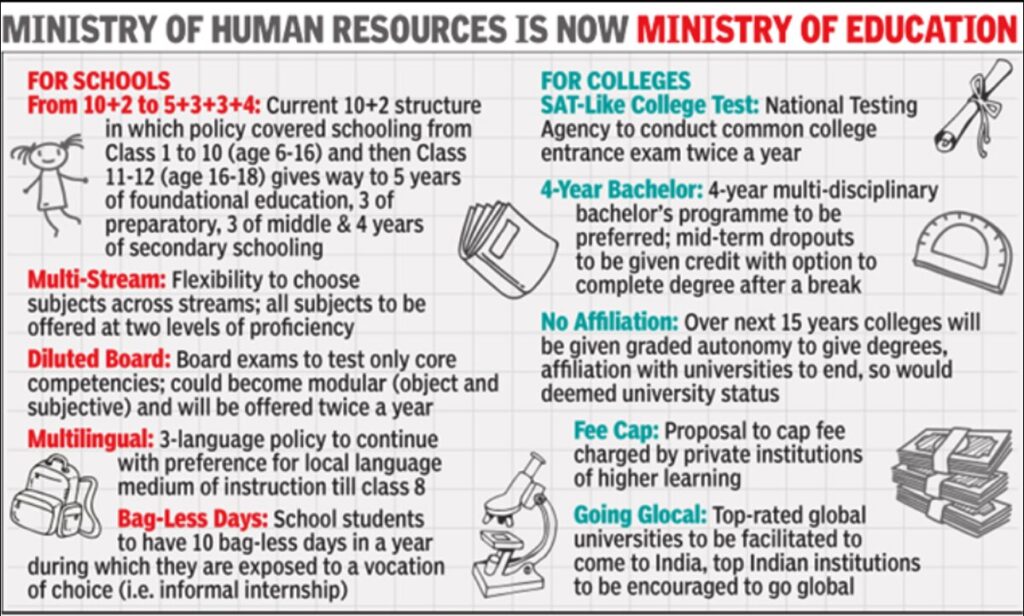National Education Policy for India – Key Points of Note

National Education Policy for India - Key Points of Note
In preparation for the implementation of the new National Education Policy (hernya) by the Indian Council for Research on Education (ICRE) at the end of this academic year, a task has been imposed on the National Board for Secondary Education (NCRE) to prepare a Policy for the same. The main thrust of this task was to understand the requirements, thoughts and sentiments of the students as expressed in their National Assessment Procedures for English medium students. This policy is being prepared in consultation with the ICRE. Following are some key points of the NEP Policy that can be understood in this context.
Nationality It is a common notion that the academic freedom enjoyed by NRIs and other professionals in various fields is threatened by the existence of the National Education Policy. However, Nationality is not the end-all and be-all criteria for selection for the faculty posts in the different universities of India. The existing staffing policy does not discriminate on the basis of nationality. The NEP aims at promoting self-sufficiency in education within the borders of India and maintaining and preserving the integrity of the multicultural heritage of the country.
Nationality concerns for NRIs have also been clarified in the NEP. While the present government is concentrating on attaining the goal of increasing the share of foreign students in the total population of Indian universities, it also hopes that there will be a healthy flow of local manpower into the country’s colleges and universities. According to the current planning consensus, there should be an increased emphasis on quality education from local universities and higher institutes in order to improve the living standards of the people of the rural areas.
Examination Entry into the National Board for Secondary Education for first time students will be restricted to those who have cleared the entrance examination for the National Health Services or National Education Examination Board (NEB) and National Council for Medical Examiners (NCME). Currently, there are no plans to open up the examination board for the NRIs from outside the country. All examinations for foreign students will be held under the auspices of the Union Public Service Commission (UPSC). All board exams will be conducted separately and without any connection whatever to the government in Delhi.
Nationality issues are taken care of by the National Health Services (NHS) that provide healthcare services to the people of all ages in the national territory. In addition, there are numerous private hospitals in major cities that cater to the medical needs of the people of the urban areas. There are several key highlights of the NEP in the context of managing the manpower crisis in the country for higher education. The present government has decided to increase the annual allocation for the National Health Services (NHS) to more than four hundred billion Rupees.
The NEP targets a greater level of literacy and has set up special policies for those who cannot read or write English. It is also interested in ensuring better levels of child development with special focus on the mentally retarded and physically handicapped children. The key highlights of the national education policy for India for the 2021 forward include continuing the successful rural development program which has been an important element in the nation’s socio economic growth. The new NEP includes a fund allocation of eight percent of per capita income for rural development.
The next NEP planning conference will be held at Kanjeevaram in Kerala in the month of March. All states have been invited to participate in the conference irrespective of whether they have notified their intention to join the conference or not. The target dates for completing the work for the planned twenty-first NEP include completing the framing of the twenty-first NEP charter, getting the drafts of the twenty-first NEP policy approved and having a final copy of the NEP approved. After this the ministry of external affairs will be consulted to ensure that the necessary preparations for the final meeting are made. The final meeting of the NEP for the year2019 is scheduled for after the end of the next fiscal year (end of June 2021).
As was the case earlier the primary responsibility of the NDFE (National Forest Education Foundation) is to promote and maintain the quality of the National Teacher Education curriculum across states and to ensure that it remains consistent with the current teaching standards throughout the country. NDFE also works towards providing financial support to the state board and commission schools. It also provides technical and financial support to school management system and to school programs that help students learn and develop in various subjects including reading, writing, math, science, geography, language, art, music, sports and drama across subjects.








